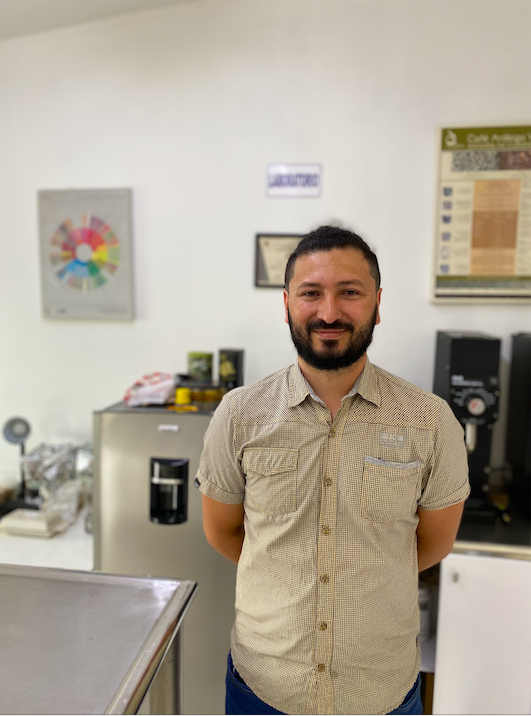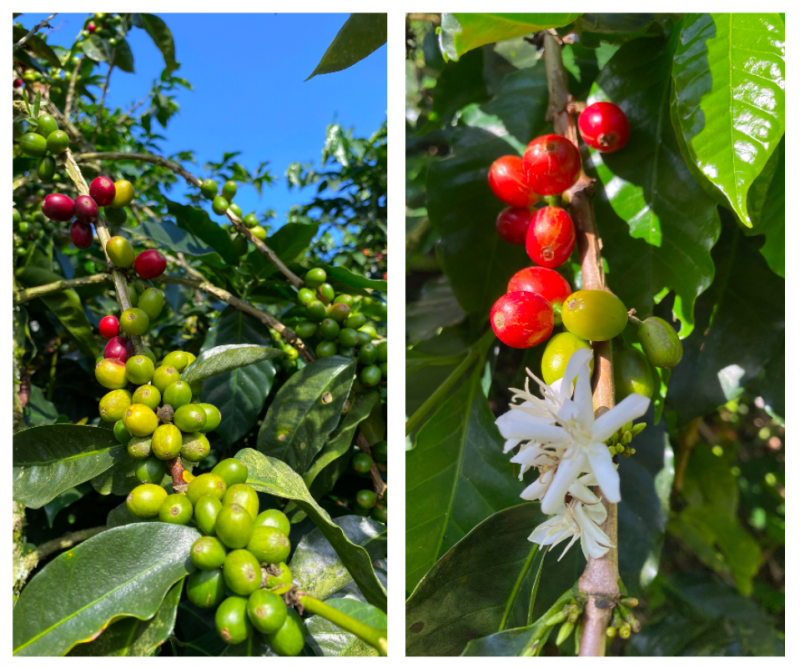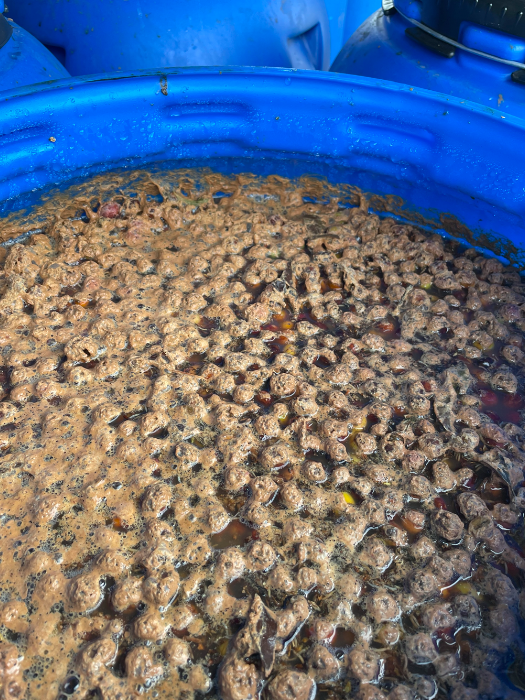This is a part of a series written by Jose and Nicole Fernandes of Sabores Flavours of Colombia Coffee, originally published in Issue 46 of The Coffee Magazine. They asked four incredible coffee producers the same set of questions and the variety of answers is truly enlightening.

Andrés Quiceno
Andrés is Café Uba’s technical and commercial manager. Working alongside with producer Julio Madrid, the owner of Café Uba’s farms La Riviera, Milan, and Buenos Aires, they’ve become well known in South Africa thanks to their culturing processes. Recently gaining even more notoriety with the nitro fermentation that pleasantly surprised judges at the World Coffee Championship in Greece.
1. What are the primary challenges faced by specialty coffee producers in Colombia?
I believe that we're currently facing one of the most challenging periods for both traditional and specialty coffee farming. Three factors, namely low prices, low quality, and low quantity are converging to impact us all. This is a result of various forces, including climate change, social issues, leadership problems within coffee unions, and delayed generational relay, among others. Concerning the challenge of climate change, our proximity to the Pacific coast and the tropical humid forests of Chocó results in more rainfall at our Café Uba farms. Increased rain, in turn, hinders the coffee tree's stress levels, leading to fewer flowers, lower yields, and decreased coffee cherry production. Moreover, the reduced dry periods contribute to flower rot and the emergence of previously unseen plagues, particularly fungal infections.

2. What changes have you made in recent years to stay current in coffee production and maintain crop exports?
A significant change for us has come from developing new fermentation processes. For example, by processing coffees through culturing, we've elevated conventional varieties like Castillo or Caturra to the next level in cup quality, commanding prime rates in international markets.
Another noteworthy change at Café Uba is the successful integration of all processes under one roof—from coffee growing and processing to wet and dry milling, roasting for national and international customers, and exporting. This integration provides us more control over the entire chain, enhances quality and reduces the involvement of intermediaries, ultimately lowering end prices and benefiting the green buyer and end consumer.

3. Where do you see Colombian specialty coffee production heading in the medium-term future?
The current international specialty Colombian coffee trading scenario is quite complex. Global recession has impacted consumption, forcing roasters to cut expenses after being left with costly inventories. The current low international coffee price from several other origins has further slowed or decreased purchase frequency from our clients.
I foresee Colombia transitioning from solely being a coffee-producing country to becoming both a producer and transformer. Increasing the consumption of national specialty coffees locally, through national buying and roasting, while educating our own people to create interest in this high-value product, is crucial to avoiding complete dependence on international buyers for financial sustain.
4. If given the opportunity, what aspects of the global trade and marketing of Colombian specialty coffees would you alter?
I would appreciate the creation of more efficient trading channels between producers, international buyers, and end-consumers. We are quite fortunate, as our company has grown by staying vigilant on market demands. The specialty coffee market evolves rapidly. For example, in Korea, the specialty coffee culture has evolved significantly in recent years, with both coffee professionals and end consumers becoming more knowledgeable about Colombian specialty coffees, about exotic varieties, new farmers, new fermentation processes and even on cupping differences depending on the terroir where the coffees are grown. Listening closely to them helps us, as farmers and exporters, understand what characteristics our upcoming crops need to have. One common mistake Colombian farmers make is processing coffee based on personal preferences rather than understanding market demands. We need to engage with consumers and roasters abroad to comprehend what people want, allowing us to evolve at a steady pace with the world.
Within the dynamic composition of Colombian specialty coffee, the narratives of Elkin Guzmán, Nicolás Ocampo, Nestor Lasso, and Andrés Quiceno converge with a shared resilience against challenges. Through our conversations, we witness their collective journey—a testament to overcoming both local and global obstacles and shaping a positive future for new generations of Colombian specialty coffee farming.
As we raise our cups to their stories, we celebrate the unity in diversity, the strength in shared experiences, and the enduring optimism that defines the heart of specialty coffee farming. We look forward to continuing these meaningful conversations in the years ahead, encouraging connections between our customers and the producers.
***Thank you to Jose and Nicole for translating these very insightful interviews.